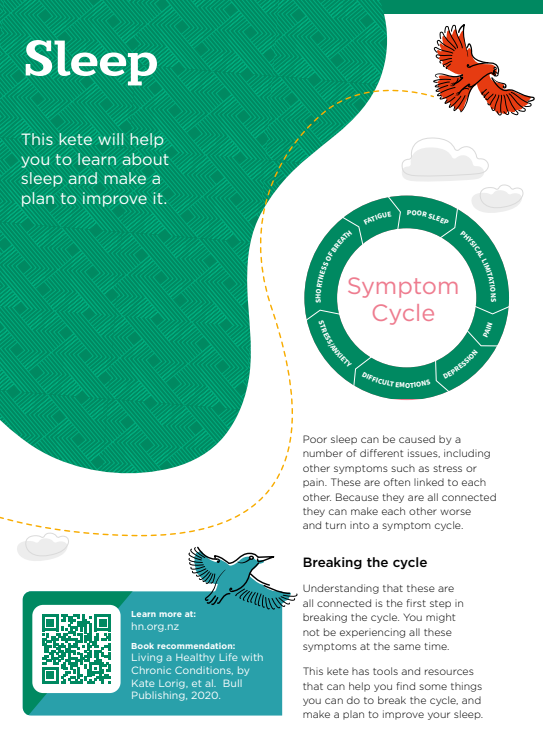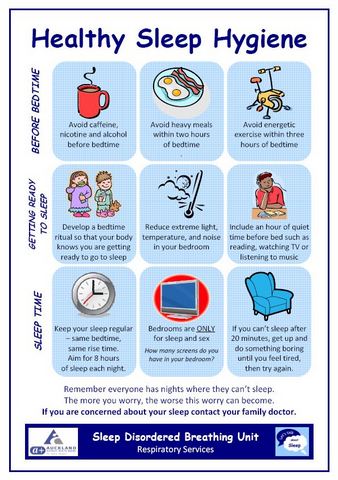Shift work is work that starts before 8am or finishes after 6pm – or any work hours that cause a change in your normal sleep patterns. It is one of the leading causes of fatigue as it requires you to work when your body would normally be at rest.
Many people in Aotearoa New Zealand work shifts, eg, as a truck driver, nurse, doctor, factory worker, taxi driver, cleaner, police officer or in security.
Low or no data? Visit zero.govt.nz, scroll down the page then click on our logo to return to our site and browse for free.
Shift work and how it affects your sleep
Key points about shift work and sleep
- Shift work can easily lead to a lack of sleep.
- This puts you at risk of workplace or driving accidents and at a greater risk of health issues over time.
- The only way to recover from tiredness is to get enough sleep – what you take out of the sleep bank, you need to put back in.
- Making sleep a priority is important for your short-term safety and your long-term health.

Accidents
Shift work puts you and others at risk, as you are more likely to make mistakes and have accidents when you are tired. Your urge to sleep increases in the early hours of the morning and again at mid-afternoon, making these high-risk times for fatigue-related accidents or micro-sleeping (very brief periods of sleep).
Health risks
Working at night also has a greater impact on your body and physical health than working the same number of hours during the day. Shift workers can develop a condition known as shift work sleep disorder. Its symptoms include insomnia, excessive sleepiness, headaches, irritability, reduced concentration and a lack of energy that doesn't reduce over time.
Shift workers lose an average of 1–1.5 hours of sleep each 24-hour period. After 4 nights, you will have lost 6 hours of sleep. If you work for more than 70 hours per 7-day week or more than 14 hours in one shift, you are at high risk of your tiredness affecting your performance and your health. To compensate, you need at least 2 consecutive full night’s sleep with a normal day between.
Use the following tips to help you recover from shift work and catch up on sleep.
1. Create a restful environment at home
- Let whānau, neighbours and friends know and understand your shift schedule.
- Make sure everyone at home understands what you need and works together to achieve it.
- Keep your bedroom dark and cool, with sound insulation on doors and windows if possible.
- Switch your landline to answer machine and lower the ringtone and turn your cell phone off.
- Have a routine for waking up, just as non-shift workers do.
2. Sleep at night when you can
- After you have worked night shifts, sleep only long enough to feel refreshed.
- It can be tempting to sleeping longer but this can delay your adjustment to a regular, daytime work sleeping pattern.
3. Remember to exercise and eat well
- Aim to get some exercise every day.
- Exercise can simply mean being active in general, eg, going for a 30-minute walk or shooting some hoops with the kids.
- Some studies caution against vigorous exercise within the last 2 hours before bedtime as it can make it harder to go to sleep.
- Have 3 meals a day of healthy food, at roughly the same time every day.
- Restrict your intake of caffeine in the hours before you go to bed.
- Have healthy snacks like fruit and fruit juice, raw vegetables and cheese.
4. Avoid sleeping pills and alcohol
- Sleeping pills can lead to abnormal sleep patterns and may be addictive.
- Talk to your doctor about any sleep problems.
- Drinking alcohol before bed may disturb your sleep and require you to go the toilet more often during the night.
5. Still can’t sleep?
- Play some soft music.
- Take a bath.
- Try yoga before bed.
- Read a boring book.
- Drink a cup of chamomile or valerian tea 1–2 hours before bed.
Employers
As an employer, you want productive, happy staff and to minimise workplace accidents. If you need your staff to work long hours or do shift work here are a few tips to help prevent fatigue-related problems:
- Make sure staff take regular rest breaks during shifts.
- Make food available to staff where appropriate.
- Provide good supervision of shifts.
- Be aware of the times when people are most likely to be affected by fatigue. Aim to manage shift work and overtime so that employees have regular opportunities for adequate recovery through high-quality sleep.
- If possible, allow employees longer periods off if they must sleep during the day.
- Be alert for the contribution of fatigue in accident investigations. Support staff as far as possible (and ask staff about the best way to do this).
Employees
As an employee, you can make choices that help to minimise the negative effects of shift work on your health and wellbeing. These include learning about:
- what to eat and when
- the impact of caffeine and alcohol on sleep
- how to make the most of breaks
- how to use recovery and rest time appropriately
- how to adjust your sleeping area to promote good sleep
- how to recognise fatigue
- getting to and from work safely
- the impact of exercise on fatigue.
Things you can do to stay alert:
- stand up and walk when you get the chance
- wash your hands and wet your face
- listen to the radio
- keep the light bright
- do more stimulating work when you begin to feel drowsy
- engage with your co-workers and help them to stay alert as well
- stay cool – when you need warmth, direct it to your feet and let fresh air in on your face.
The following links provide further information about shift work and sleep. Be aware that websites from other countries may have information that differs from New Zealand recommendations.
Fatigue – quick guide(external link) WorkSafe NZ
Coping with shift work(external link) Healthy Food Guide, NZ
Tips for coping with shift work(external link) University of Otago Wellington Sleep Investigation Centre
Shiftwork, fatigue and rostering solutions(external link) Shiftwork Services, NZ
Shift work disorder(external link) Sleep Education, US
Hints and tips for shift-workers(external link) Health and Safety Executive, UK
Brochures
Te Kete Sleep [PDF, 497 KB] Healthify He Puna Waiora, NZ, 2022
Common sleep problems(external link) Health Information Translations, 2020 English(external link), Arabic(external link), Chinese (simplified)(external link), Chinese (traditional)(external link), French(external link), Hindi(external link), Japanese(external link), Korean(external link), Nepali(external link), Russian(external link), Somali(external link), Spanish(external link), Vietnamese(external link)
Healthy sleep hygiene [PDF, 306 KB] Auckland DHB, NZ
10 tips for a better night sleep(external link) Farmstrong, NZ, 2018
Apps/tools
Sleepio – sleep better(external link)
References
- Managing the risks of shift work(external link) Worksafe NZ, 2021
- Guidelines for managing fatigue(external link) Massey University, NZ, 2008
- Hints and tips for shift-workers(external link) Health and Safety Executive, UK
Evidence summary on the non-pharmacological management of sleep disorders in shift workers(external link) Springer Link Jin-yu Wu, Hui Li, Jun-kun Shuai, Yue He & Peng-cheng Li, 2023
Overview of circadian sleep-wake rhythm disorders(external link) UpToDate Cathy A Goldstein, MD, 2022
Shift work, scheduling and risk factors(external link) ASMS Research Brief, 2016
Brochures
Credits: Healthify Editorial Team. Healthify is brought to you by Health Navigator Charitable Trust.
Last reviewed:
Page last updated:








